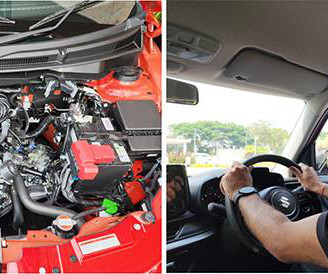TDK and Toshiba establish JV for automotive inverters for HEVs, PHEVs, EVs
Green Car Congress
SEPTEMBER 3, 2016
TDK Corporation and Toshiba Corporation have agreed to establish a joint venture—TDK Automotive Technologies Corporation—that will develop, manufacture and sell automotive inverters for hybrid vehicles, plug-in hybrid vehicles and electric vehicles.












Let's personalize your content